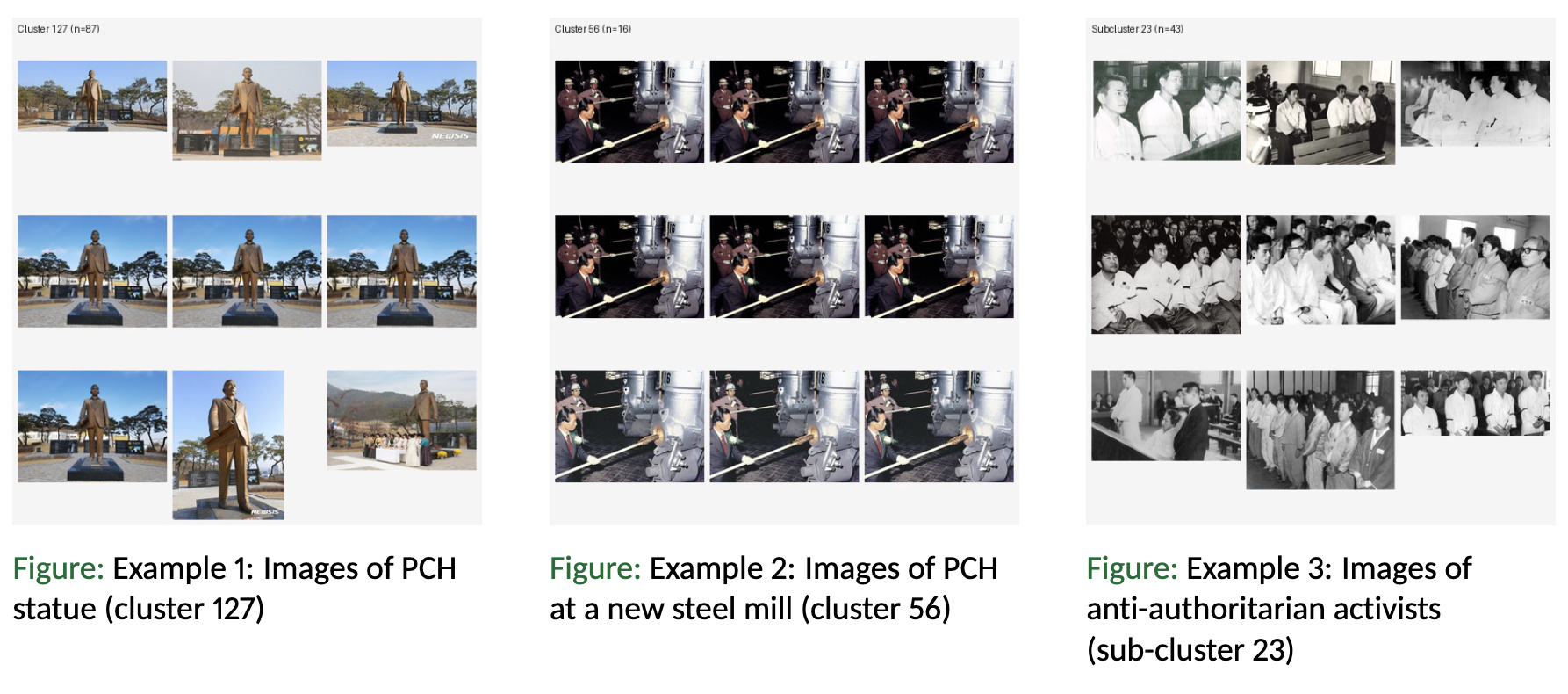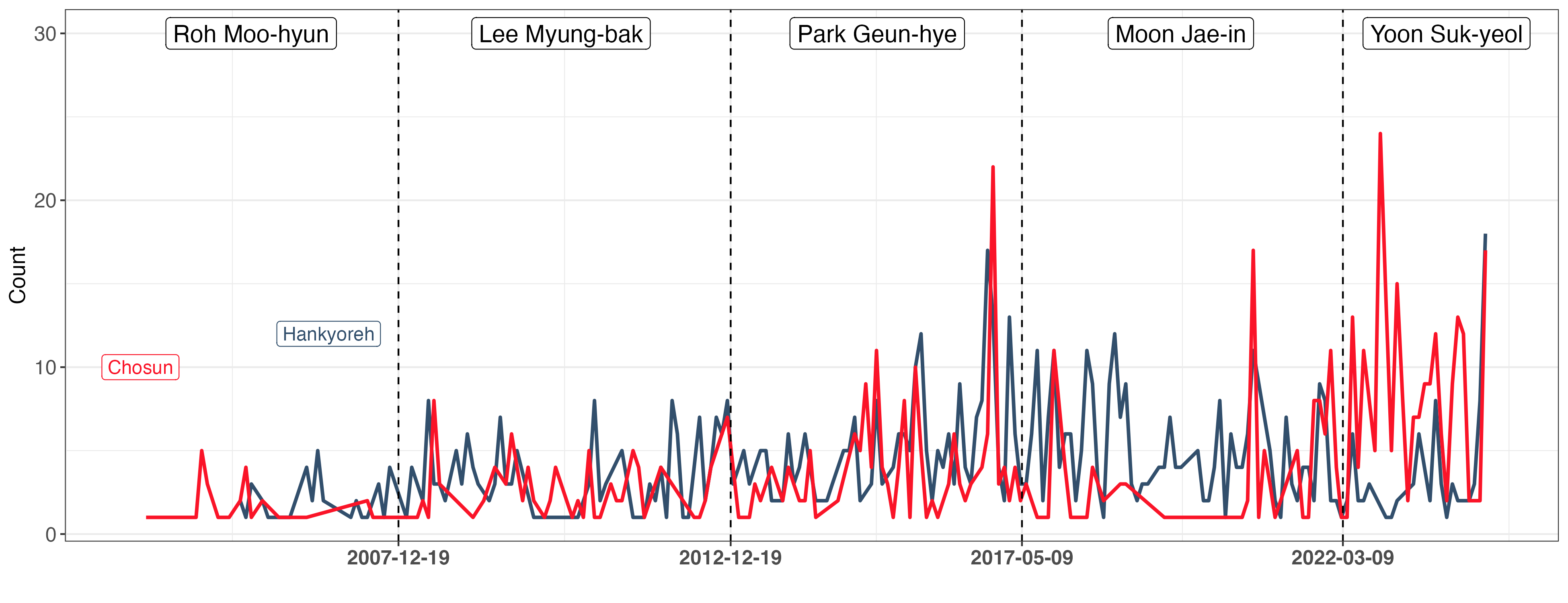Pixelated Authoritarian Nostalgia: The Use of Nostalgic Rhetoric of Former Dictators in the Media
Democratic transition marks the end of former dictatorships; however, the former authoritarian regimes still shape voter attitudes and related behavior in many new democracies. Political elites often revisit and reframe the past in order to construct favorable historical narratives and win votes in democratic elections. News media play a significant role in this regard, with conservative media often invoking nostalgia for past dictatorships. This paper explores how newspapers engage in nostalgic rhetoric and how such media selectively use different images of former dictators, with a focus on the visual and textual representations. We draw on the case of South Korea, where nostalgic reference for Park Chung-hee’s dictatorship remains strong across democratic elections. We collect text and image data from Korean newspapers on the opposite sides of the ideological spectrum and compare visual and textual rhetoric for Park in four aspects: the frequency of images depicting him, the variation in visual topics, the verbal messages associated visual images, and the variation in these features around elections. We employ semantic image clustering and text topic modeling and answer how newspapers narrate the past using both visual and textual messages. Findings suggest the lingering polarization in memory construction in a post-authoritarian country.

